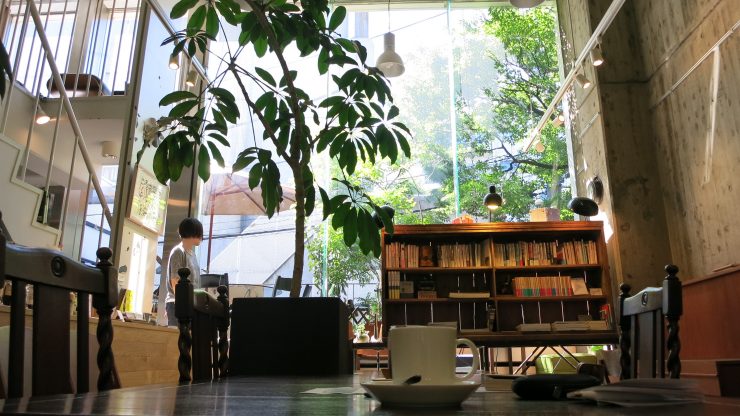
By day, sunlight filters through green leaves and floor-to-ceiling windows into the space that is Haden Books. Summer has descended upon Tokyo, and yet, Haden Books feels like a little pocket hideaway, ignoring all the rules. Hidden a little ways from the busy streets of Omotesando, it’s cool, quiet, and relaxed.
Inside, a young woman sips at a coffee and leafs through a magazine from the selection by the entrance. Owner Eiji Hayashita chats with her a little about the Sakura-flavored coffee, and the weather, and then he leaves her to enjoy the silence. I take a seat quietly at a large wooden table, and I order a coffee—the Haden Books blend, courtesy of Horiguchi Coffee.
And to a gentle soundtrack of melancholic piano tunes, Hayashita tells me a little about the space, and what it means to him.
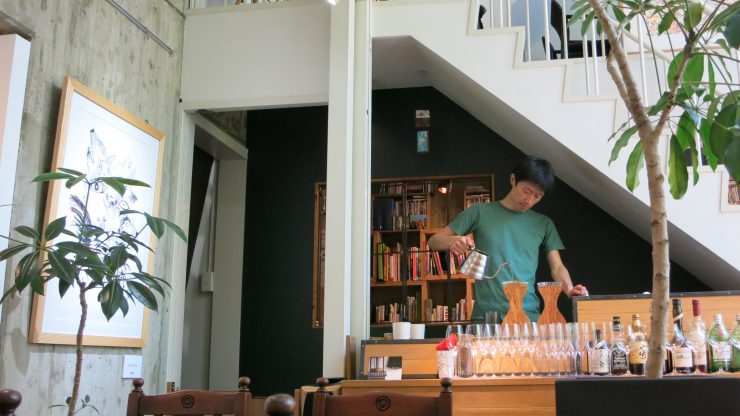
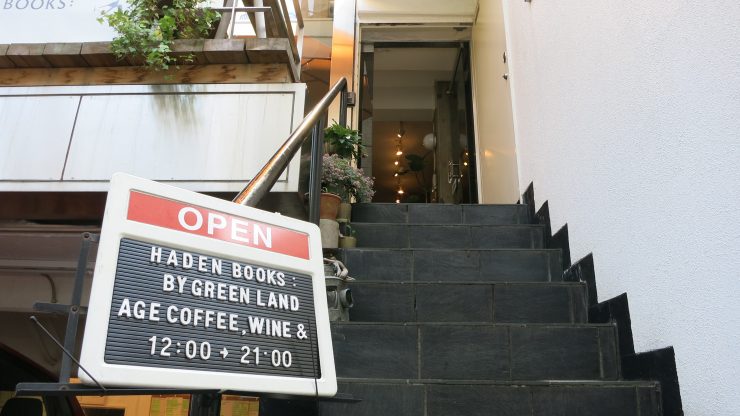
“I wanted to make a quiet place blending music, words, and art,” he says. “A place where a person could sit down to get lost in a book, or just enjoy some quiet. I feel like that kind of place is hard to find here in Tokyo.”
He pours water through the V60 filter, and tells me he’s no coffee professional. Hayashita’s been brewing for some nine years, but seems bashful about it. When he talks about the cafe’s other coffees (roasted by Brown’s Café and Beans)—the Erik Satie blend and the Sakura blend—and the selection of Parisian Kusmi Tea, there’s a sense that it’s about more than just the drinks. Hayashita says they’re part of the experience—a medium through which people might discover something new.
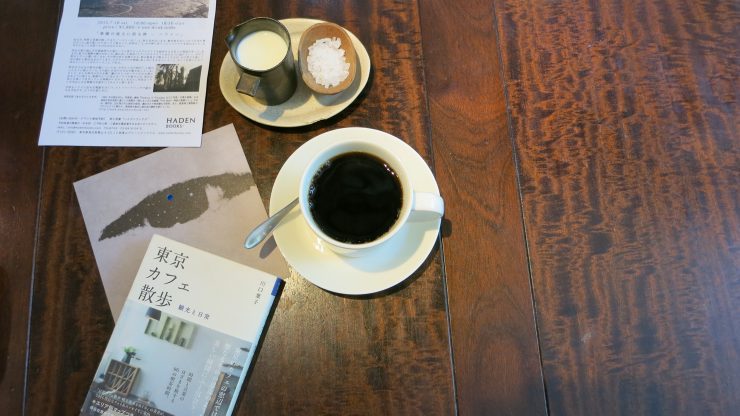
“Books, words, music—in many ways, they’re like trips to another time, and another place. But we sometimes need the right atmosphere for it; a place conducive to encountering that new creativity.”
Hayashita pours, and waits, and talks. He doesn’t hurry. He says a nicely brewed cup of coffee goes well with a morning cigarette. He says the people that visit take their time. Stay for long stretches. The coffee, the tea, they’re permission to relax. As he stoops under the staircase, finishing off the last touches to my cup of coffee, he almost seems like the protagonist in a Murakami novel. He’s just an ordinary guy, but he’s created a unique kind of space and silence here.
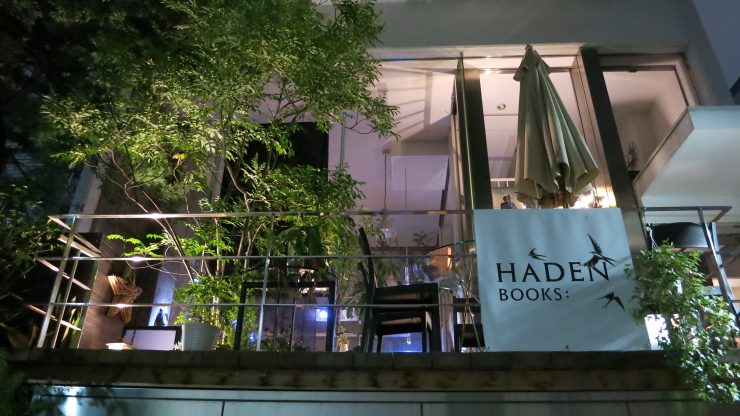
The building that Haden Books calls home was introduced to Hayashita. He says he didn’t have to look for it, which feels somehow serendipitous. For a time, he considered a redesign—moving the staircase, evening out the floor, opening up the space—and yet, ultimately, decided to work with what was already there. He says it felt more natural to keep things as they were.
The result is a lived-in kind of warmth—something slightly out of place here in the big city—with hints of eccentricity in the art that covers the walls and shelves. It’s all wrapped up in a drifting sense of calm and quiet, that seems to emanate from the shop itself.
By night, on my next visit, I watch a lone man sip at sake and flip through a magazine. He’s hunched over, lost in the pages. I contemplate ordering another cup of coffee. Hayashita appears for a moment, changes a CD, then disappears again into the storeroom. Between his wanderings, I ask a little more about him, the shop, and the books.
Hayashita started out as an editor. Magazine work landed him a job managing a book-cafe, where he organized events for artists, musicians, and other creatives. He started Haden Books as a way to focus more on connecting people with creative work, and creating the perfect space for it.
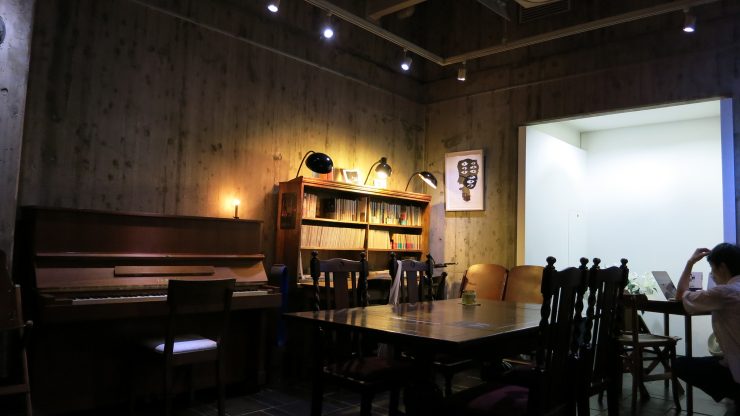
He shows me pictures of past photography events. Talks about movie viewings, piano concerts, and secret live shows by musicians passing through town. He says there’s a kind of intimacy in live performances of music and art—a moment shared exclusively by the artist and the audience, in that particular space and time.
I ask Hayashita if it’s just him running the show. He says mostly, yeah, it is.
“Maybe it would be easier if I had another person here,” he says. “Maybe I’d have more free time. But if I was responsible for an employee’s wages, I’d have to think about sales, and the bottom line. I’d have to think about making money. I think I’d lose my way. I want to avoid the business side of things, and focus on providing opportunities for people to encounter something new and refreshing.”
I don’t know that I’ve ever heard it put like that. I sit back, stare at the ceiling, and think about Haden Books. The way you never feel pressured to leave. The way you’re drawn to the CDs and books by the entrance. There might not be another place like it. I listen lazily to the piano track, and wonder if I’ve heard it before.
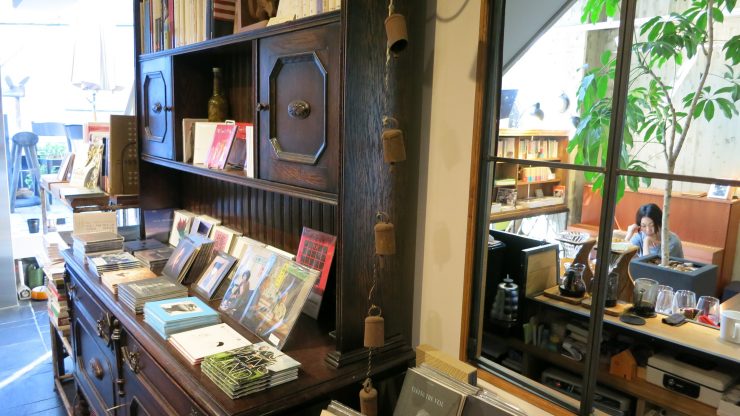
Hayashita watches me a moment, and tells me the track was recorded here. He points to the old piano by the wall. He says that’s where they did it. He marvels at how nicely the track turned out, and for a moment it’s like he’s watching it play out all over again.
And that’s what it’s all about—the harmonies, contrast, and blend of written words and wordless music, and the quiet space you need to really know them. It’s that moment with a coffee in hand and a new book, or a pot of tea on the table and a brand new soundtrack. I can’t think of the last time I sat down and just read. Just listened. Without checking my phone, or my computer, or eavesdropping on nearby conversations.
But Haden Books gives you that opportunity. It welcomes you with coffee, charms you with its quiet, and slowly opens your eyes and ears. To new experiences, and new discoveries.
Perhaps ones you won’t find anywhere else.
Haden Books is located at Minato-Ku, Minami Aoyama 4 Chome 25-10, Tokyo. Visit their official website, and follow them on Facebook, Twitter, and Instagram.
Hengtee Lim (@Hent03) is a Sprudge.com staff writer based in Tokyo. Read more Hengtee Lim on Sprudge.
The post Tokyo: Coffee At Haden Books, A Little Pocket Hideaway In Omotesando appeared first on Sprudge.

